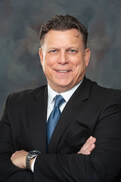 Jeff Olson Jeff Olson Dakota Credit Union Association Statement on SB 2266 Senate Floor Vote “On behalf of the 18 state chartered credit unions and our 214,000 credit union members in North Dakota, we are extremely pleased and excited about the outcome in the North Dakota Senate floor vote in support on our Field of Membership (FOM) modernization bill, SB 2266 today,” said Jeff Olson, President/CEO of the Dakota Credit Union Association. After 30 full minutes of floor debate, the North Dakota Senate passed SB 2266 on a vote of 24-23. Led by the Dakota Credit Union Association and its Governmental Affairs Committee, the FOM modernization efforts will provide North Dakota state chartered credit unions some similarity with federally chartered credit unions as well as increase geographic boundaries. The bill came out of the Senate Industry and Business Committee (IBC) amended with a 4-0 “do pass” recommendation (one committee member was absent and did not vote). The Senate then approved amendments, which would allow North Dakota state chartered credit unions to expand their FOM from 75 miles from their home office to 125 miles, and included individuals that work, live, or attend school within that geographic boundary, by a voice vote on the Senate floor on Wednesday, February 8. “Getting this bill through the Senate was our first hurdle, and we sincerely appreciate the work that our bill sponsors did in supporting our efforts, as well as the work of the Senate IBL committee for their markup which allowed us to get this win on the Senate floor,” added Olson. “Now, it’s on to the House, where we expect our bill to go before their IBL Committee in early March.” Today, North Dakota state chartered credit unions are disadvantaged in comparison to how federally chartered credit unions can operate. If state chartered credit unions converted to federally chartered institutions, an option they always have, they could expand their Field of Membership to include the entire state under the Rural District FOM rule. “Our objective with this bill is to preserve the state charter system and maintain local oversight and control,” Olson explained. “The North Dakota Department of Financial Institutions has a better understanding of the type of financial services and support we provide to local farmers and ranchers in comparison to federal regulators.” North Dakota banks currently dominate the state’s marketplace with 90 percent of the market share in deposits and assets. The 59 state chartered banks reported assets at $41 billion at the end of September 2022, compared to $4.7 in assets for the 18 state chartered credit unions. Under the current statute, state chartered credit unions are limited to serving citizens that reside within 75 miles of a credit union’s home office. This language was approved in 2005 by a bill that was drafted and pushed by the North Dakota Bankers Association and the Independent Community Banks of North Dakota, and was clearly meant to lock credit unions down and curb credit union growth and expansion in the state. Since 2005, it has been particularly difficult for credit unions in the western side of the state to grow and offer more affordable financial services and products to North Dakotans. Today, the only way for North Dakota credit unions to expand their geographic area, is to merge with another credit union in another community or location and assume their FOM. According to Olson, that is exactly what happened, leading to the decline in state chartered credit unions in the state. In the years since the 2005 bill, the total number of credit unions in the state dropped from 55 to 31, and for state chartered credit unions, the numbers have dropped from 36 to just 18 today. “While today’s Senate vote was a win for North Dakota credit unions, we will need to regroup and gear up for another battle in the House in early March. In the end, the real winners will be North Dakota consumers, farmers and ranchers, and our rural communities who will have more financial service options and the freedom to choose their best financial services partner,” concluded Olson. Comments are closed.
|
The MemoThe Memo is DakCU's newsletter that keeps Want the Memo delivered straight to your inbox?
Archives
July 2024
Categories
All
|
|
Copyright Dakota Credit Union Association. All Rights Reserved.
2005 N Kavaney Dr - Suite 201 | Bismarck, North Dakota 58501 Phone: 800-279-6328 | [email protected] | sitemap | privacy policy |





